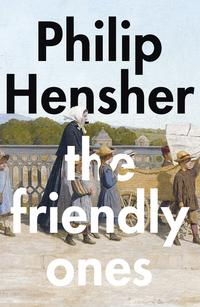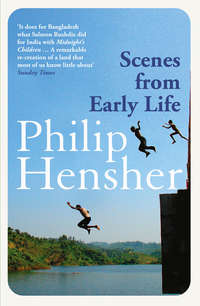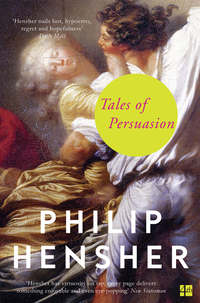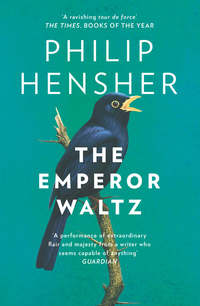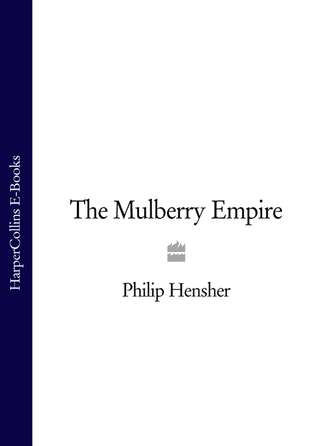
Полная версия
The Mulberry Empire
4.
Out on the street, debate about the Europeans who rode so badly was furious and incessant, like the noise of a cloud of swallows.
‘The Amir will not see them.’
‘The Amir will see them tomorrow, fool. He has seen them yesterday, and knows everything about them.’
‘How can the Amir have seen them when they have not seen the Amir?’
At the edges of the market, the old men jogged up and down on their heels, agitated by debate, and punched at the air, quick as clockwork. They bothered no one.
‘The Amir sent Akbar the son of the Amir, and the Amir saw them with the eyes of Akbar.’
‘Did they not know the son of the Amir when Akbar was announced?’
‘Many are the ways of the Amir Dost Mohammed Khan, and wise they are.’
Futteh the singer, plump and pale as a dove, his saucy eyes wandering to make sure of his audience, finished sucking on his plum, pondered, spat. He began a story.
‘You recall the tale of the Vizier’s daughter and the son of the King,’ he started. ‘And the King did not know how he should know if the daughter of the Vizier was true and good as she was thought to be. Now, this was many, many years ago, in China. And the Vizier had the most marvellous garden of roses in all of China, and he was in the habit of taking a walk in the garden, each morning. And one morning, he was accompanied in his walk by his daughter, who was as beautiful as the first light of the dawn over the mountains. He was glad to walk in the rose garden with his daughter, and, after they had walked together for an hour, the Vizier said to his daughter: My daughter, is it true that …’
The story unravelled. Futteh was a good storyteller, and, even in the cold of the early evening, he could hold half a dozen old men with his seamless voice. Their eyes fixed on his, six pairs of eyes, whether crafty, knowing, cynical, for the moment subdued into the quiet trust of the audience. Their knees hunched, their backs against the wall, they listened to the comforting tale they had heard hundreds of times before. Occasionally they interrupted with marginal, concerned comments – ‘He does not know that the ring has been swallowed by the fish on the King’s table,’ or, ‘The girl, does she not understand that the man she is marrying is her own brother?’ or, as narrative catastrophe threatened, ‘Allah is great and merciful.’ But for the most part, they let Futteh tell the story in his own leisurely manner.
When it was over, an hour or two had passed, and the audience sighed, as if wanting more of their own satisfaction.
‘The son of the King in the story disguised himself, and went into the marketplace to hear what the common people were saying,’ one of the audience said.
‘Yes, and that is what Akbar, son of the Amir Dost Mohammed Khan, that is what he has done, with the Russians.’
‘They are not Russians,’ another man said, passing. ‘Engelstan.’
‘Akbar put on a tribesman’s clothes, and took a jezail,’ Futteh said, waving his hand in the air impatiently, dismissing either the objection or the flies. ‘And he went to the house where the English are, and sat with them for two hours, and talked with them. But all the time, they did not know who they were speaking with.’
‘Great is the mind of the Amir Dost Mohammed Khan, and wise is he in the ways of the world,’ someone murmured.
‘And they ride so badly,’ Futteh added, with great finality.
‘Like the sack of rice on the back of an old donkey,’ his listeners chorused sagely.
5.
The orchard city fell into shade as the afternoon wore on; pale peaches, espaliered against the wall, plums, apricots, pears; beneath the window of the Newab Jubbur Khan where they sat all day, a fine apple tree, just like the trees of Burnes’s childhood. He shut his eyes, and sniffed, and sometimes, through all the smell and noise and clear strange mountain air, there was all his childhood, in the sheltered Montrose garden. Walnuts, cherries, vines, and more wonderful things, pomegranates growing in the streets, and, everywhere, mulberry trees; their fruit piled up in market stalls, lying in the street, and the whole city sucking ceaselessly on fruit. At the door of their wing in the courtyard, a small boy, padded up with scraps of cloth, his legs wrapped up puttee-fashion, his dirty feet bare and hardened in sandals, was sucking on a handful of cherries and mulberries, cracking walnuts between his hard teeth, and every so often running his tongue round his mouth to clean off what juice was staining his face, leaving a fat white clown-smile in a fruit-smeared face. And everywhere the birds; bright chattering magpies, the fat burble of doves, edging at each other in their nervous fighting. Burnes watched them for hours from the window. And the nightingale; he had never known, quite, what the Persians meant when they wrote about the nightingale, but here, it was a sharp lemon tang, cutting through the rich sweetness of the dungy perfumed city, a line of pure song, returning on itself, multiplying, varying, twisting, but always, always, itself. He sat in the evening light, and listened, and found no way to ask the others to be quiet too.
The day wore on, and at some point towards the end of the afternoon, a procession of dishes began to be carried into the room. The two women of the house, veiled in brick-red cloaks, carried them in. Their veils were raw squares of cloth, dropped over their heads. A coarse lattice was cut in to allow them to see. Burnes seemed to catch the glint of an eye through the loose weave of the eye-slit, and, before he lowered his eyes, wondered for a moment if that meant the woman was looking at him. From their gait, they were both young, and the contours of their bodies were revealed by the rippling red cloth.
A third woman stood at the door and watched, holding a baby; she too was veiled; even the baby was veiled. She seemed to be supervising the other women. Perhaps a favoured wife. The dishes were set down on the floor without explanation, and, when the entire room was filled with clay dishes, the three women retreated to the door, looked once at the food, and not at the men, and quickly left. And then the Newab Jubbur Khan came in.
The Newab, whose house this was, seemed to regard them with an almost affectionate air. He made a point of eating with them; he also made a point of coming in after the food, and leaving without excusing himself. The three of them scrambled to their feet.
‘You have passed an agreeable day, I hope?’ the Newab said kindly. He was a slight man, his nose a huge beak in his little face; when he walked, it was with an evident consciousness of grandeur which his appearance did not entitle him to. He walked like a man who has once been fat. ‘If you do not object, I would like to eat with you.’
‘We would be honoured,’ Burnes said.
‘Honoured indeed,’ Gerard said, looking warily at the food. ‘Thrice honoured.’
The Newab nodded agreeably at Gerard’s meaningless formulation. ‘Sit, sit,’ he said. He rattled off the habitual prayer, lazily looking round, and without taking a breath, fell back from Arabic into Persian. ‘The lamb is particularly fine, from my own flock.’ He gestured at a greasy-looking dish, grey and shining in the sun. Burnes leant forward and scooped up some of the cold stew, knowing perfectly well that the Newab was lying politely, since all the food here had to be ordered up from the bazaar. Gerard just looked green.
‘Tell me,’ the Newab asked, after each of the dishes had been commended and accepted, and they were embarked on the task of struggling unsuccessfully with what could be eaten of the Newab’s food. ‘How large a city is London, or Calcutta?’
‘They are different cities, Newab, and both large and beautiful,’ Mohan Lal said.
‘I see,’ the Newab said. He seemed, still, to be under the impression that Calcutta and London were more or less the same place, or perhaps different names for the same city; an impression they had been trying to correct for some time now. ‘But how big? Is it, for instance, as large as our city?’
‘I think it might be even a little larger,’ Burnes said tactfully. ‘How many people, for instance, live in Kabul?’
The Newab sucked on his teeth, and gazed at the wall, as if calculating. ‘Many, many people, and their numbers grow every day, thanks to the wisdom and kindness of the Amir who rules over them.’
‘I see,’ Burnes said, making a routine half-incline of the head at the mention of the Amir.
‘London has many hundreds of thousands of inhabitants, and is the richest and most beautiful city in the world,’ Gerard cut in. Burnes looked at him in irritation; what the point of boasting to the Newab about the size of London was, he had no idea. Just an unthinking, involuntary outcrop of Gerard’s personality, as frustrating and impossible to argue with as geology.
‘Of course, we have seen very little of Kabul,’ Burnes said. ‘But the reputation of the beauty and splendour of the city has spread far, and we have travelled from India in the hope that we may see for ourselves.’
‘How is it that you have seen very little of Kabul?’ the Newab abruptly asked. He seemed genuinely puzzled, proffering a dish of boiled aubergines.
Burnes was thrown. ‘We have been resting here, at your hospitality,’ he said finally, seeing no way to point out that they were effectively prisoners. At that, as if to make his point, one of the succession of small boys with muskets wandered in. He greeted the Newab elaborately, the English more casually, and sat down in the corner of the room, promptly falling asleep, both hands on the barrel of his gun. ‘At the gracious hospitality of the Newab,’ Burnes said, pointedly. ‘We have been unable to see the famous city of Kabul.’
‘Great is the city of Kabul,’ the Newab Jubbur Khan echoed, absently. He took a piece of bread, tearing it in half, and dipped it in some dish of meat; before eating it, he made a vague gesture of invitation towards Gerard, who, with too evident unwillingness, followed his example. ‘Yes, the city is great, and its fame has spread far. The bazaar of the city is the greatest in the world, where the world comes to marvel at the riches and splendour of the empire. The merchants of China and Russia and Engelstan come to the great markets, laden with goods, and leave laden down with more than they brought, such are the marvels of the city. The beauty and splendour of the city is great, and the beauty of the people of the Emperor is famous throughout the world. And such, willing, it will always be. Over the city is the Bala Hissar, the palace of my brother, the Amir Dost Mohammed Khan, where my brother rules over his family and his wives and his wealth in wisdom and mercy and goodness, willing. And the palace of my brother is famed throughout the world, and the world comes to express its wonder at its beauty and greatness and the greatness of my brother the Amir.’
He paused, perhaps considering whether his description of the city would, in the end, be as useful to the English as simply letting them out to look for themselves; perhaps, however, considering what there could possibly be to start praising next in the high stinking city. Not the food, at any rate, Burnes thought unkindly, refusing the offer of another greasy dish.
‘The Amir is your brother?’ Mohan Lal said.
‘The Amir is the brother, it is said, of every Afghan,’ Burnes said, helping out.
‘He is my brother,’ Jubbur Khan said simply. ‘The shade of the same mountain shadowed our birth, and may the same stream refresh his parched tongue.’
‘May friendship be forever between warriors,’ Burnes said.
‘And he is my brother,’ Jubbur Khan said again.
‘He is the brother of every Afghan,’ Gerard said, conventionally echoing what Burnes had said.
‘He is the brother of every Afghan,’ Jubbur Khan agreed. But then he seemed troubled, and said, once more, more emphatically, ‘The Amir is my brother.’
‘He is the brother of every Afghan,’ Gerard said again, idiotically.
‘He is your brother?’ Burnes cut in. ‘He is the son of your father?’
‘He is the son of my father,’ Jubbur Khan said, relieved. ‘Yes, he is the son of my father.’
This explained a great deal. And now Jubbur Khan got up, as if he had said enough to explain who he was, and who the Amir was, and what the Europeans were. He got up, bowing on all sides, and swept out with massive graciousness, hardly waiting for his guests to raise themselves and bow graciously back, as if his good manners were such that no complementary response could possibly improve or complete them, and was out of the door and at the bottom of the stairs before Gerard succumbed to what had clearly been troubling him for some time, a colossal, harrumphing and malodorous fart, like a bough breaking under the sheer weight of fruit. The boy guard looked up, surprised and humorous. Burnes vastly bowed in his direction, the sleeves of his robe collapsing about his arms and hands. ‘And to you, O Lord of the Wind of a Hundred and Twenty Days,’ he said. ‘That, I expect, is a very good sign.’
‘Indeed,’ Mohan Lal said. ‘Your digestion is improving, to venture a fart. You need not have waited until the departure of the Newab, indeed. I have read that the Afghan custom is to fart at table.’
‘A risky business,’ Gerard said. ‘With nothing to eat but this damned greasy food.’
6.
Outside, there was a flicker of movement. A scarlet-leaved tree against the dense dusk sky trembled suddenly; a gust, quickly over, as if someone had shaken the tree’s trunk and run away. Another movement, something which might have been a bird, shooting up from the tree with a raucous squawk, abruptly muted. Gerard raised himself from where he lay, complete with food and boredom, and went to the window, where Burnes was already standing. Underneath the tree, a flash, sudden, of white, like the wink of a fish belly, turning in a black pool. For a moment the faces of the Afghans had turned up to the window, before returning to their usual occupation; their teeth and eyes winking white in the dusk. They could be guards; yes, they could be; or, conceivably, they could merely be sitting there, as they would sit there indifferently, whoever was inside the house of the Newab. Burnes did not know, and could not think who to ask.
Out in the court, the squatting boys were preparing for their street-sport. There were five of them, and each clutched, underneath his arm, something which peeped and squawked, a weak piping squawk like an unoiled hinge. With his free hand, each dipped steadily into a little bag, tied to the sash at his waist next to the knife, and ate shrivelled-up little apricots, crunching and spitting the stones with all the absorption they had. In a moment, a boy threw down the piping bird under his arm, and, as if recognizing the challenge, the boy facing him in the circle threw down his bird, too. The two quails shivered their plumage back into plumpness, and nervously strutted in the other’s direction. The boys made an encouraging noise, a quick strange grunting rattle, like a pig eating a snake, and a handful of grain was flung down. The fight began.
It was dark, below, and Burnes could see nothing of the sport; the faces were turned down in excited absorption, and all that could be heard was the occasional fierce cry from a boy, quickly stifled, the pipe and peck of two small birds fighting over a handful of grain. Burnes had seen the sport before, in the daylight, from this window. The rudimentary contest seemed never to weary or tire the street, and they squatted over the two little fat birds, watched them barge each other, pluck at each other with their fierce little beaks like toy birds, a harmless little bout between paint-bright tin birds, wheeling in their tin circles.
Down there, small cries of excitement, quickly muted, were being made; this was not a game for cheering at, but one where the small shrieks of the birds, rending and tearing each other’s little flesh for grain, was to be heard and winced over. This was the sport – the one thing, as it were – which kept Kabul quiet, and everyone watched it; underneath the window, Burnes had seen fine horsemen, street boys – even, a couple of times, an idle Newab Jubbur Khan leaving his house for a morning constitutional – pause for a moment before the rapt silent bout. It was too dark to see, from the window, what was happening; you could not see which of the two birds was succeeding, which was succumbing. There was only the faint tremulous cries of small fat birds, assaulting each other furiously over grain which neither of them would eat. Burnes drew back into the room.
The guard came in. But instead of sitting down in the corner, he stood at the door, and looked at them; at Burnes and Gerard and Mohan Lal. ‘He,’ the guard said finally, ‘will see you tomorrow.’ He made a small gesture with his head, the side-to-side twist, an acknowledgement of something, though none of them had said anything, and then left.
They stared at each other.
He will see you tomorrow, the guard had said, just that; and Burnes ran the sentence through his head, over and over again, to see if it was clear, if he had understood it correctly. Language brings opposite meanings so intimately together, and if the guard had said He will not see you tomorrow, there was a terrible danger that Burnes would have missed it. He ran through the sentence, over and over, adding words which he might have missed, substituting they for he, never for tomorrow, kill for see. He got to the end of it. He was absolutely sure of what he had heard. The Emperor of the Afghans would see them tomorrow.
But with that certainty came an appalling and unanticipated terror. They had travelled to Kabul, never knowing what they would find there; had presented themselves at the gates; had submitted to their guesthouse garrison without more than a weak tremor of dread. And now, with the certainty that they would do what they had arrived to do, terror set upon Burnes. No; not quite that; it was not that something had struck at him. It was more that something had left him. As if, with the ordinary words, some great certain presence in him had abruptly fled, clearing the walls and windows, the barriers of his own skin without an effort. He sat, trying, almost, not to shake with the black terror of his own certainty, fleeing him, and waited for it to leave. It was the Wind of a Hundred and Twenty Days, and it began in this room, it began its furious flight from this little room, and fled from him, his fear, his terror, his knowledge. He did not know, quite, what it was, what certainty he was losing with this flight, as if of wind; he could only feel it leaving, with no sense at all of what would be left of him when it was gone, what strength to carry out his task. He waited saying nothing, as if in thought, and in a moment it was over; the fleeing strength and certainty had, just at the door, turned and looked at him in quiet curiosity. At him: at the shell of what had housed all that certainty for so long. Turned and looked and left, leaving nothing but Burnes. He sat for a moment in silence, wanting not to show any fear, to anyone, ever again.
7.
In these long nights, Burnes dreamt of Montrose. He could not help it.
You went to the door of your chamber, and turned, and looked. The thin curtains were blowing in the summer breeze, and already, at this moment in the morning, the sun was lighting the thin white cloth, there at the narrow windows. You looked down at yourself, and there too, your white nightgown billowed out with the cool Scottish morning breeze, lit with the cool Scottish morning light. And there were your boy’s feet, there, on the floor, blue almost with the cold, and veiny. For a moment, you could go back and hug yourself in bed, while the first of the morning; there, your bed, cut and rumpled and squashy with your sleep; or you could do what you could do, run downstairs in your bare feet and throw open the Montrose door to the Montrose morning. Rub your eyes and moan like a dove with your sleep; push your fists into your eye sockets, and fret your sides with your own quick warming embrace. And there. The blue sky; the birds at song; the smell of the morning’s first earth and, behind you, the first clanking noises of the house, preparing itself for the day, as the maids raked the fire and the girl brought in the milk. Yes, he would run, in this cold he could see, and not only feel, down to look at the dreamt Montrose morning.
But then he turned and looked at Montrose, and it too had become an orchard city, high in the dry brown mountains; Scotland turned to Islam, the granite city turned to a city of mulberries, and the perfume wafting over Burnes’s sleep was not heather, the song was not that of the starling, but the heavy blossom of mulberry, the clean song of nightingales. It was as if he woke, and went to the Montrose window, and outside, there were orchards and orchards of mulberries. Mulberries outside, weighing the tree down, the tree glimpsed through the open Scottish door. And there, there, was a boy, a curious near-boy, a near-warrior, barely uniformed, a powdery beard against his soft skin, scurrying away outside, peering in at Burnes, in his high gleaming magnificence. And in his wake a sweet whiff of the many-perfumed city, a waft of dung and smoke and the high Scottish, yes, heathery Scottish mountain air; and the scent, too, of mulberries, growing outside somewhere, clotted on the trees, fallen and thick on the roads as dung. Burnes looked down at himself, and his bare nightgowned flesh was glittering with brass, with spurs, his boots bright with polish, but stained with the fruit flesh, the limbs of one who had walked long and far through the orchards. And as he woke, Burnes thought of something he knew, even after waking, to be true: that the fruit for which the English had the single name of mulberry had in Persian six separate names, and in Pushto, the language of the far high hills, the fruit had so many names that no one could ever know them all; a fruit which, before, had seemed single turned in Burnes’s dream into one with so many names that no man had ever counted them all, and no man would ever risk reciting the many divine names of the divine fruit.
They must have come early, the next morning. Burnes woke from his dream, and already he could hear the whinnying of the strange horses out there in the garden, their unfamiliar-sounding jingle. He lay there on the padded floor, his eyes open, and could see from their unnatural stillness that Gerard and Mohan Lal, too, had woken, and were lying without moving, their eyes closed, feigning sleep so as not to move, not just yet. He lay and listened to the terrifying noise of the horses. They were down there, the men who would take them to the Emperor, of whom they knew nothing, of whose cruelty and goodness they knew nothing. Down there, waiting with all the patience they were born with.
They dressed quickly, and after a breakfast of milk and flat bread, went down to their escorts. They were there, sitting peaceably on their horses, not dismounting, just waiting as they had waited, surely, for an hour or two. Burnes led the other two out. Mohan Lal awkwardly salaamed, a gesture which they returned perfunctorily; their unfamiliar, unwelcoming look at the guide confirming what Burnes had always felt, that his frankly inquiring gaze, noting down, say, a particular stirrup loop as peculiar to the region, was always one guaranteed to bring suspicion and dislike down, not just on him but on the whole party.
It was the first time out of the house in days, and Burnes could not help feeling stiff. He stretched, awkwardly, as the light almost hurt his eyes, and for the first time, he saw the city. Not arriving for the first time, where novelty coloured the vision, not through a window, making distant what was there to be seen, but seeing a city which, it now seemed, he knew from his memory. A scattered city, lying in the scoop of the earth, the brown cubed houses lying against the vast slow rise of the brown mountains like dice in a cupped pair of hands. All the way they had ridden here, the earth had seemed dully brown, unchanging, empty, like the momentarily empty earth after waterless months, from which all colour had been sucked, leaving only brown. But now, coming out into the air, it seemed as if everything had enriched, multiplied in the unchanging earth; the dazed eye, looking down from the dazzling clean blue of the sky, saw a hundred, a thousand tints in the bare mountain earth; browns whitening with chalk, a streak of vivid yellow, a shadow going into mauve in the early-morning sun. Everything, he saw, pausing here before the bleak dazzling sun, could be found here; horses, orchards, sky, water, earth, and now, waiting for the high remote Emperor, he seemed in terror and jubilation to see everything there was, everything, there in the earth.


